One of the biggest causes of business failure is poor liquidity – failing to manage cashflow properly. That’s why smart businesses always take a proactive approach to cashflow management.
The pace of business is also getting faster. Trading conditions continue to be challenging. So, many companies are abandoning traditional loans (which come with strict lending covenants and over-the-top monthly reporting requirements) to explore new options.
It’s also why there has been a growing trend, by both SMEs and large public companies, to adopt new financing solutions such as Receivables Finance and Short-Term Loans.
These used to be treated as niche products. They even had some stigma attached. That’s no longer the case, as these financing solutions have rapidly become more mainstream. Directors and CFOs are particularly grateful – less reporting means more time to focus on growing the business and increasing revenue and profits.
In this article, we’ll look at how Receivables Finance and Short-Term Finance products are used to build a more robust business
Could Receivables Finance be a solution?
Receivables Finance refers to a group of products that help unlock cash from the invoices you issue to customers. Your customers may be on 30- or 60-day payment terms (assuming they pay on time). Instead of a long wait for payment, a lender gives you immediate access to the cash.
That can free up funds needed to pay regular commitments – whether that’s a weekly fuel bill, labour hire agency fees, trade creditors or the ATO. It might give you the confidence to take on new staff, safe in the knowledge that your business will get regular cash injections from the Receivables Finance provider.
That can help you plan for long-term growth – and bigger profits.
Receivables Finance products are easy to manage and don’t require you to provide any personal security. There are also options where you don’t need to be locked in long-term.
You might even find that this type of facility helps you manage your debtor risk. That’s because your finance provider will keep you updated on changes in your customers’ risk profiles. They will also highlight any potential bad debt problems before they become unmanageable.
These flexible solutions are used across a wide range of different industry sectors. They are suitable for different business profiles, ranging from start-ups through to large public companies.
If your business has cash tied up in customer invoices, might this be an option to consider?
Short-Term Finance options might also help
Short-Term Finance refers to loan products that are designed as a quick fix: to cover a one-off or unusual situation. That might be whenever your business is facing a cash gap – whether that’s paying a supplier, payroll commitments, fuel bills, rent, the ATO, a Vendor (as part of an business acquisition), or any other liability.
Again, this type of facility is easy to manage. Importantly, it doesn’t require you to provide any personal security. These products are also flexible, with many offering a redraw option.
The other benefit is the speed at which you can access this kind of loan. Applications, and all the required legal documentation, can be submitted electronically. Approval is generally fast. That means the cash will hit your account quickly, just when you need it. You will then generally have between 6 and 24 months to repay the loan.
Short-term loans are suitable for use in a wide range of industry sectors and for different sizes of business, again, ranging from start-ups to large public companies.
How do you choose the right product?
With such a wide range of products available, it’s important to choose the right one for your situation, but unfortunately it’s easy to get overwhelmed.
PFBS are leading experts in Receivables Finance and Short-Term Finance solutions. We do the work to find you the right strategic lending partner to help you grow your business and increase your profits.
Simply call us now at PFBS – Australia’s Working Capital experts.

